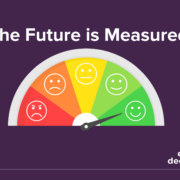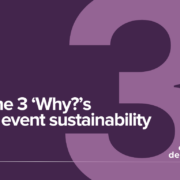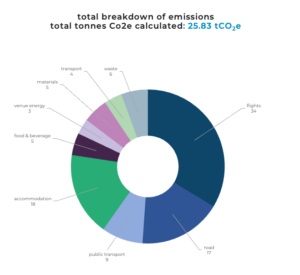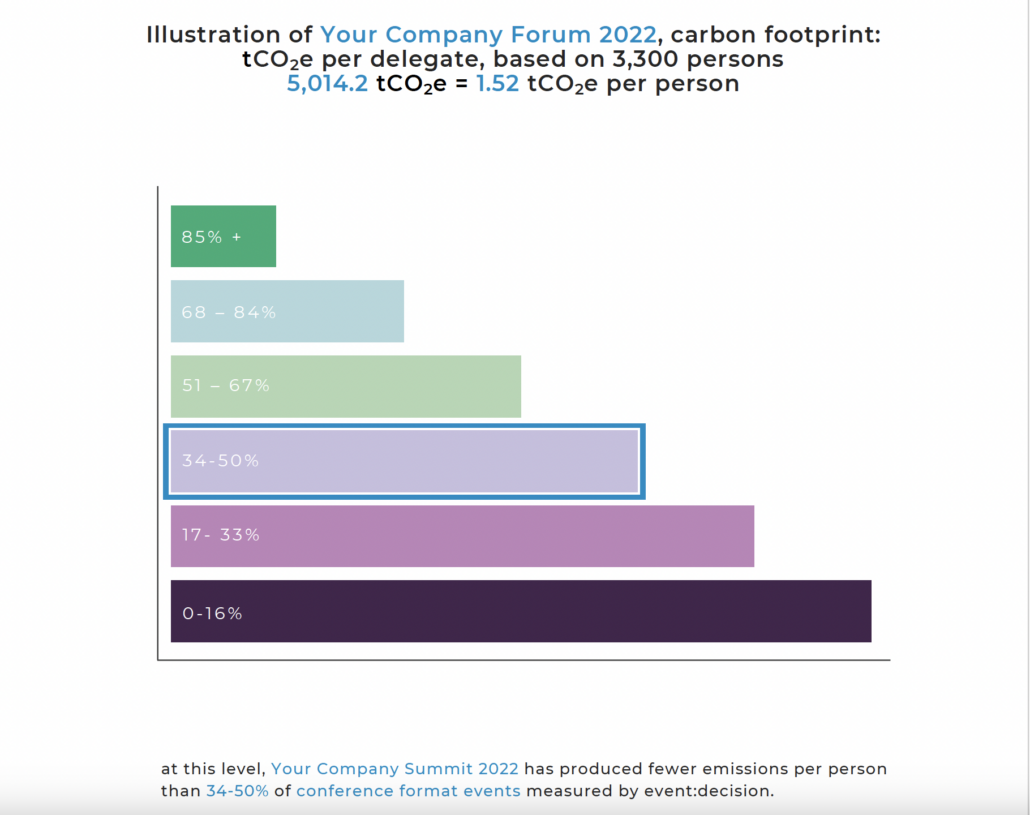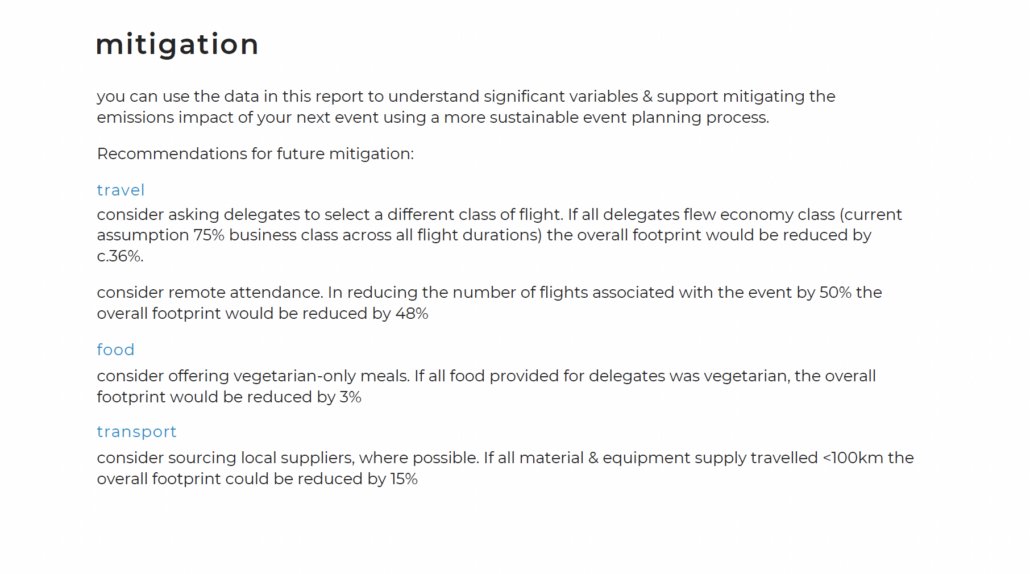The Future is Measured
Why Better Event Measurement Means Better Event Planning
In the world of the event professional, the call for sustainability is no longer a whisper but a shout through the corridors of conference halls, the fields of festivals, and the digital spaces of virtual events.
Your attendees are not looking for you to solve the world’s problems via your event. But they are looking for you to publicly keep your promises to deliver sustainably.
Sustainability begins with an understanding of the impact of events – and to understand impact you need measurement. To plan sustainably, event planners must delve into the world of carbon footprints then extend their gaze beyond, and embrace an intricate web of analytics and data insights.
The crucial first step: carbon footprint calculation
Carbon footprint calculation is the cornerstone of sustainable event planning. It offers a quantifiable measure of the environmental impact that an event has through the emissions of greenhouse gases (GHG). By meticulously tracking everything from energy consumption of the venue to the transportation used by attendees, event planners can grasp the carbon costs of their events. Our own product Track is designed to make this simple for event planners with no need for data input or training on the part of the event planner.
But, calculating a carbon footprint isn’t just about tallying up numbers. It’s an exercise in environmental awareness, spotlighting the areas where an event’s environmental impact is most significant. Whether it’s through destination & venue selection, energy-efficient lighting, electronic ticketing, or sourcing local food to reduce transport emissions, each decision is a step towards a smaller carbon footprint.
Beyond carbon: the spectrum of sustainability metrics
Sustainability doesn’t begin and end with carbon. It covers a much broader spectrum that includes water usage, waste generation, and even the socioeconomic impacts on the local community. Effective sustainability measures requires a 360 degree view that captures not just the environmental, but also the social and economic aspects of an event.
For instance, water usage at events, often overlooked, can be substantial. Measuring this usage not only helps in reducing consumption but also in setting benchmarks for future events. Similarly, waste management – quantifying it, adopting ways to minimise it, and finding pathways for recycling and composting – plays a crucial role in sustainable event planning.
Complex decisions require in-depth measurement
Event planning is a series of complex decisions, each with its own sustainability implications. To make informed choices, event planners should use robust measurement tools that provide in-depth insights into every aspect of the event. event:decision has a suite of interlocking tools designed just for this purpose.
Insights call for detailed life cycle assessments of products and services used, evaluation of the supply chain for sustainability credentials, and analysis of attendee behaviour for insights into sustainable practices. The objective is to establish a holistic sustainability framework that can guide every decision, from the most mundane to the most significant.
The role of data insights and analysis
Don’t be frightened! Data insights and analysis are the compass by which event planners can navigate the rough seas of sustainability. Through careful data collection and analysis, planners can identify trends, predict outcomes, and assess the effectiveness of their sustainability initiatives. This can be a really simple process.
For example, by analysing the travel patterns of attendees, planners can offer more sustainable transport options or even adjust the event location. By gathering data on resource consumption, planners can identify opportunities for using renewable resources or cutting down on unnecessary usage.
Implementing sustainable event technology
Technology plays a crucial role in facilitating better measurement and analysis. Event technology can track real-time data on resource consumption, manage waste more efficiently, and even measure attendee engagement with sustainability initiatives.
From apps that help attendees travel more sustainably to platforms that facilitate virtual attendance – thus reducing the event’s carbon footprint – technology should be an enabler of sustainability, as well as the means to measure it. It also serves as a medium for transparency, allowing event planners to share sustainability metrics with stakeholders, thereby fostering an ethos of accountability.
This allows you to make your attendees feel good about attending, surely a must-have for all planners.
Challenges and opportunities
Measuring sustainability is not without its challenges. It requires a concerted effort from all stakeholders involved in an event, and it necessitates investment in the right tools and expertise. However, the opportunities it presents are significant. By adopting rigorous measurement practices, event planners can not only reduce the environmental impact of their events but also position themselves as leaders in the domain of sustainable event planning.
Will you get all the credit for delivering sustainably? Probably not.
But as someone once said:
It’s amazing what you can achieve when you don’t care who gets the credit.
To find out more about how we could work with you to achieve all your event sustainability and event measurement goals in 2024, get in touch.

